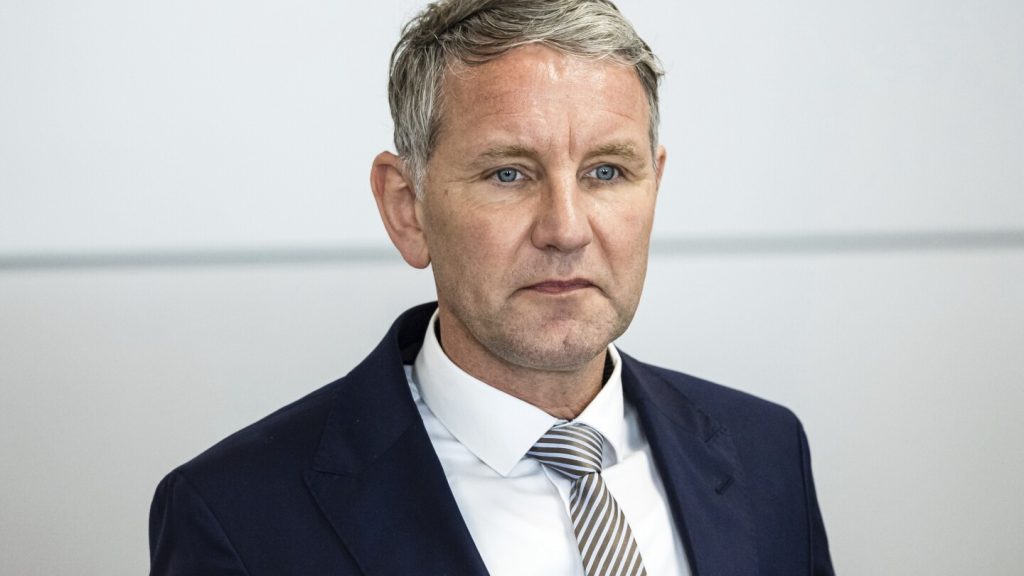The trial of far-right figure Björn Höcke began at the state court in Halle, where he is accused of using symbols of unconstitutional organizations, specifically the Nazi slogan “Everything for Germany!” Prosecutors argue that Höcke was aware of the origin of the phrase as a slogan of the Nazis’ SA stormtroopers, while Höcke claims it is simply an “everyday saying.” Despite the lack of formal pleas in the German legal system, Höcke declared his innocence in court, stating that he is a law-abiding citizen. The trial is scheduled to continue through mid-May.
Höcke, a 52-year-old former history teacher, is a prominent figure within the far-right Alternative for Germany (AfD) party. He has been the leader of AfD’s regional branch in Thuringia since the party’s founding in 2013 and is expected to lead its campaign in the upcoming state election on September 1. Höcke has been known for controversial statements, including referring to the Holocaust memorial in Berlin as a “monument of shame” and advocating for a change in how Germany remembers its past. Despite calls for his expulsion, a party tribunal in 2018 rejected the bid. The Thuringia branch of AfD is currently under official surveillance as a “proven right-wing extremist” group by the domestic intelligence agency.
The timing of Höcke’s trial is significant, as it comes just months before the regional election in Thuringia, where he plans to run for the governor’s position. The outcome of the trial could impact his political future and the AfD’s standing in the region. As a key figure on the hard right of the party, Höcke’s influence extends beyond Thuringia and is a reflection of the broader challenges faced by the AfD in Germany. The party has faced criticism for its far-right views and associations, leading to increased scrutiny from authorities.
The trial of Björn Höcke highlights the ongoing debate surrounding far-right extremism in Germany and the boundaries of free speech. The use of Nazi symbols and slogans remains a sensitive issue in a country that has grappled with its past and seeks to prevent a resurgence of extremist ideologies. The trial also raises questions about the role of political parties in addressing and confronting extremism within their ranks. As the AfD grapples with internal divisions and external pressure, the outcome of Höcke’s trial could have wider implications for the party’s future and its place in German politics.
In a statement to the court, Höcke maintained his innocence and portrayed himself as a victim of political persecution. He argued that his actions were within the bounds of free speech and dismissed the accusations against him as baseless. The trial is likely to reignite debates about the limits of political discourse and the responsibility of public figures in upholding democratic norms. The case of Björn Höcke serves as a reminder of the challenges posed by extremism and the need for vigilance in defending democratic values in Germany and beyond.


